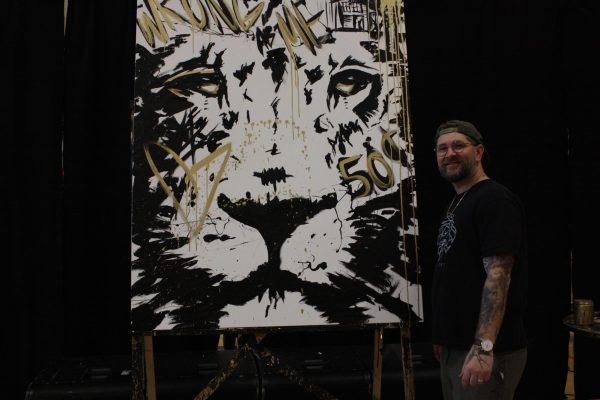Human trafficking at home

A mere 71.8 miles to another country and an hour and 15 minutes to uncertainty. Human trafficking is a real issue, and it exists in areas closer than many realize.
According to the Human Trafficking Resource Center, Michigan ranks eighth with the highest trafficking cases, at 114 for 2014. Human trafficking is identified as modern day slavery and is the second and fastest growing criminal activity in the world. Point blank, it exists, and it is close.
“It seems to be a current trend and certainly something the law enforcement community is looking at extremely close,” Stockbridge chief of police Johnnie Torres said. “There have been a lot of resources designated to trying to eliminate it. It’s something that’s definitely troubling that needs to be addressed.”
According to state representative Kurt L. Heise, Michigan has become a “focal point” for human trafficking as it is close to an international border and located among major highways. During the summer of 2013, the FBI led a sting operation “arresting pimps and freeing victims.” The Detroit area ranked second for largest number of arrests throughout the country.
Since 2007, the National Human Trafficking Resource Center reported 22,795 cases of human trafficking. Of the 4,168 cases reported this year alone, 3, 479 of the victims were female, and 458 were male. Also, the National Center for Missing and Exploited Children identifies that one out of six runaways were likely to be sex trafficking victims, and in 2014 Michigan alone had 6,924 reported runaways.
To junior Julia Olson, these statistics come as a surprise.
“I guess nobody really likes to think something like that could be so close to you,” Olson said. “It’s a surreal thing to think these things are going on around you.”
While people wonder what can be done to help, organizations such as Hope Project USA offer signs to look for and volunteer opportunities.
According to the Hope website, “modern day slavery exists in Michigan, and does not just happen in the cities like Detroit or Grand Rapids, but also in small rural towns where you’d least expect it.”
While a common misconception regarding human trafficking is that it’s focused on prostitution and sex slavery, it can be more than that. Trafficking includes sex trafficking, labor trafficking, and organ trafficking, which is the forcible removal of one’s organs.
“While [human trafficking] is not really seen around here, we have taken training and raised awareness to it because historically migrant workers have been a big part of this community,” Torres said. “We were taught to be able to identify something like that.”

Kaylee is an Editor-in-Chief on staff. She's in 12th grade and in her spare time she likes spending time with her dog, long walks on the beach, and drives...





